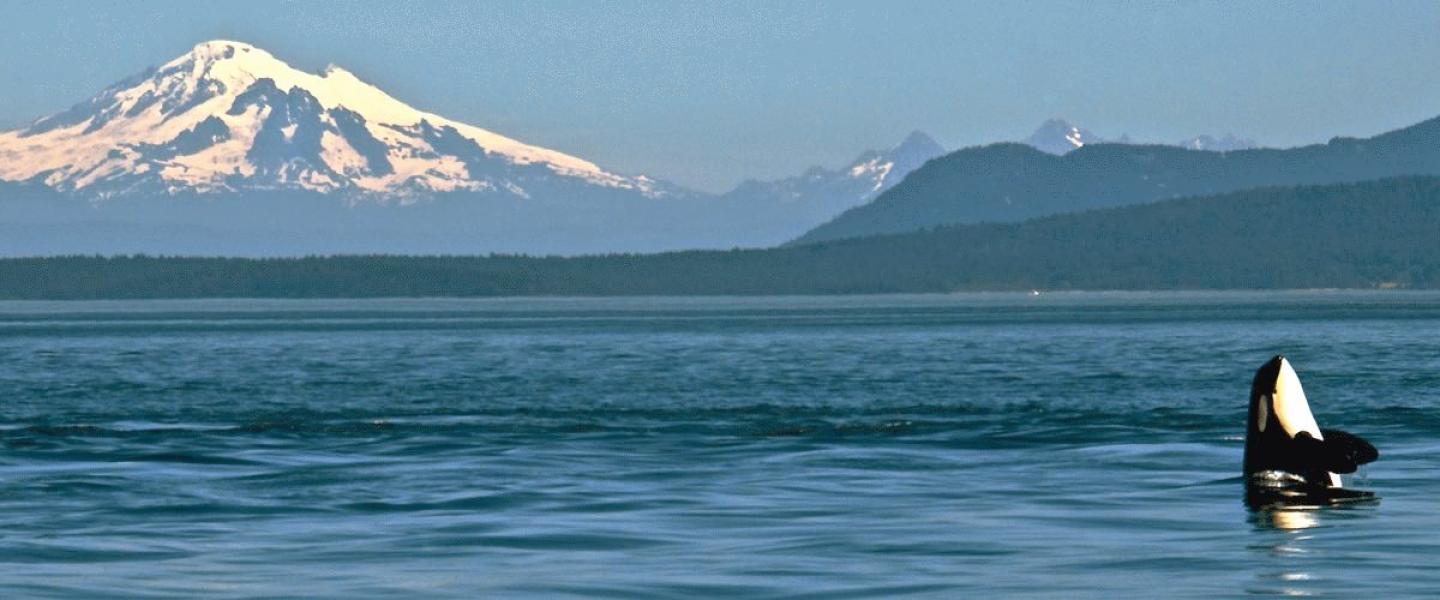
Blogging is always so much easier as a naturalist when you have amazing trips. I must say, I have been extremely fortunate throughout the 2013 season in having great trips. Tonight was another one of those top five best nights. Our Southern Resident Killer Whales surprised us all, as they usually do, by swimming the (roughly) 90 mile voyage from the western side of Vancouver Is. BC into the northern waters of the Puget Sound. It's not uncommon for Killer Whales to swim 100+ miles a day; they can swim up to 30 mph and hold their breath for up to 25 minuets! Our Residents weren't the only ones who made the journey into the Salish Sea however, our Transients did too!
When Captain Mike and I got on seen with the Orcas our guests were thrilled. We were watching a group of 12 transient whales that were different from the whales we had just seen the day before! There was one huge male in the group whose dorsal fin was very large and angular and another whose was "sprouting" into maturity. It is rare to see transients in the Puget Sound to begin with, seeing two different nomadic groups in two day is even rarer. Likewise, seeing a group of twelve transients in one pod is even rarer since they normally travel in smaller groups, making it easier for them to hunt their food. It was just a crazy night! Not only were these whales here, but they were within a couple miles of our Resident Orcas, which was also very daunting. Normally, the two groups will avoid each other entirely. For those of you who are just starting to read these blogs, Transient Orcas feed solly on marine mammals. Our Resident Orcas feed only on fish, specifically Chinook Salmon. The two whales have completely different life styles, cultures, genetics and social structures.
Since the odds were stacked in our favor, Captain Mike and I decided to go check out our Resident Orcas- L-Pod. They were off of the north end of Stewart Is. and heading southwestern. When we got there, they were breaching in synchronicity, vocalizing like crazy, tail slapping ... you name it, they were doing it! L-Pod member, Cruiser, was there as well as many females and a 2012 calf that was having tons of fun. It's amazing to me that these whales are still able to carry on and live as they are. These whales are up against a lot. The Puget Sound is actually a "hotspot" for pollution. Chemicals such as PCBs, PBDEs and other biotoxins/flame retardents make our Southern Resident Killer Whales the most toxic Killer Whales in the world. Still, they survive and live on. Celebrating their way through life, and we are fortunate enough to be able to watch. It was an amazing night, full of wildlife and wonderful sights. What a great way to end a day, with one of the world smartest mammals, our Killer Whales.
Heather, Naturalist, M/V Sea Lion
San Juan Safaris